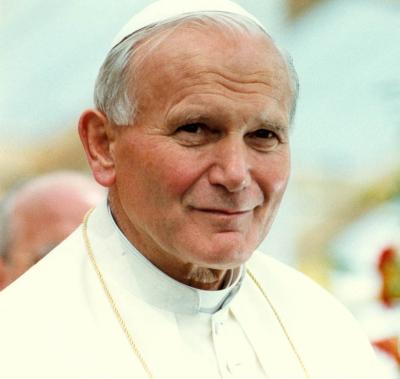Comment: John Paul II and the threats from Communism

ROME-For close to fifty years, at intervals between 1964 and 2010, I frequently found myself in Rome, usually in order to write about the Council that Blessed John XXIII unexpectedly called into existence in 1962, or about some of the many disputes and developments in the Church which followed the council, for some publication or other that was edited and circulated in the United States.
I was in Saint Peter's one morning in February 1965, four months after I first arrived in Italy, to observe the promotion of 27 new cardinals. And I was there two years later for Karol Wojtyla's promotion in June 1967. He was one of an exceptionally interesting In 1969 thirty-five more cardinals received red hats - with exactly the same mission to carry out. Among the 62 cardinals named in 1967 and 1969 to do battle with the World, and with all the rich teaching orders in the Church, Paul VI named eight Americans. Six were stubbornly orthodox - John Wright, who was generally thought to be the brainiest of the lot, was transferred from the diocese of Pittsburgh to the Roman Curia. Francis Brennan had alfready been in a prominent post in the Curia, for years. The others were the Archbishops of Saint Louis (John Joseph Carberry), New York (Terence Cooke), Philadelphia (John Joseph Krol), and Washington (Patrick O'Boyle). The other two, though they hardly seemed like fighters for (or friends of) Catholic orthodoxy, were at the head of immensely rich dioceses: Dearden in Detroit and the unprincipled Cody, who engineered the rise of an anti-Catholic journal to contradict and replace the solidly Catholic Register (which had a seemingly impregnable position as the official newspaper in many different dioceses. The hungry fox with very sharp claws and teeth, which Cody established in the hen house, was the National Catholic Reporter, which he had started in Kansas City when he was the local bishop there. I had prooofread the first copy of that paper. By the time he was finally made a cardinal by his friend Paul VI, Cody had been promoted to New Orleans, where he set up another paper that almost seemed more Communist than Catholic - and finally to Chicago. As Paul VI forced Suenens to say plainly and crudely when he compelled the Belgian cardinal (another unorthodox friend of Paul's, who was specially favoured) to return to the startled council and retract his outrageous remarks, what everyone had seen in the world's major newspapers, summing up Suenens' speech on birth control, many Catholics would see as heresy. Suenens tried of course to explain that he was misreported in the press. But the heresy he was forced to disavow by the shaken, intensely unhappy pope soon spread through much of the world. Karol Wojtyla, however, showed great zeal in offering Paul VI assistance in the writing of Humanae Vitae, and it seemed there was no other bishop in Europe, much less a cardinal who had written a profound treatise in the style of a sophisticated ultra-modern philosopher, which not only reaffirmed all the traditional arguments against contraception but offered new arguments that almost no one would even attempt to reply to.
After he had been pope for a few years, I myself felt very sure - it seemed quite obvious - that Karol Woyjyla was going to be known in history as John Paul the Great.
That implied, of course, his recognition as a saint, his canonization in some form, sooner or later.


